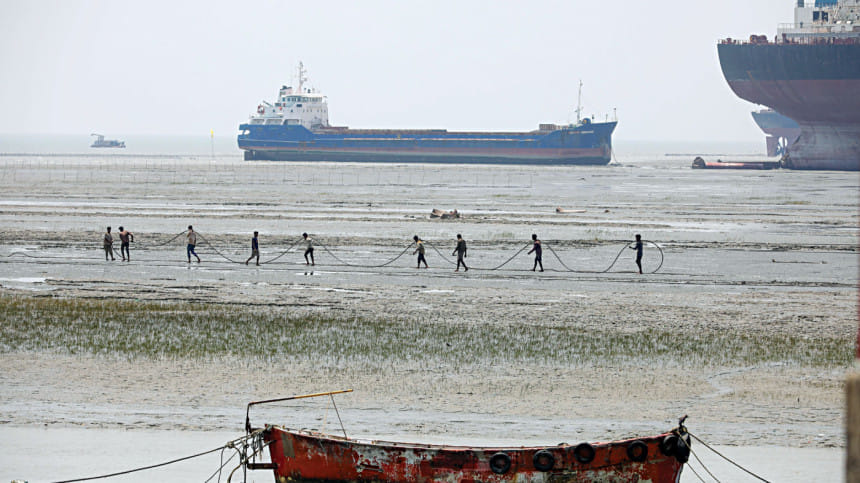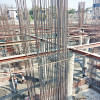Ship-breakers, re-rolling mills at loggerheads over price hike of scrap

A dispute between ship-breakers and steel re-rolling mills over the hike in price of scrap steel has led to an impasse in the production of steel goods for the past seven days.
Consequently, re-rolling mills are struggling to run operations due to a shortage of raw materials.
Neither side could give any indication about when they would reach a consensus regarding the price of ship-breaking products, including scrap steel.
The Bangladesh Ship Breakers and Recyclers Association (BSBRA) said they would not be able to sell steel, scrap or otherwise, at losses.
However, both sides stressed the need for a fast resolution, ideally through a discussion between the two sides, in order to protect business interests.
"We are facing trouble as ship-breakers have suddenly increased the price of scrap steel from Tk 65,000 to Tk 68,000-Tk 70,000 per tonne," said SK Masadul Alom Masud, managing director of Shahriar Steel Mills Ltd.
He alleged that ship-breakers had stopped the supply of scrap steel, saying they would not sell if the higher price they had set was not met.
According to Masud, small millers -- who source copper, iron and aluminum before converting them into billets, bars, beams and rods -- are dependent on ship-breakers to source scrap steel.
Most small re-rolling mills do not have the ability to import scrap steel directly, so they have to source raw materials from ship-breakers at a higher price, he said.
He added that purchasing scrap steel at the price demanded by ship-breakers would cause the costs of production to reach nearly Tk 1,00,000 per tonne.
Some small re-rolling mills have already shut down production due to a shortage of capital, he said.
Alom demanded the intervention of the tariff commission to fix the price of scrap steel.
Rakibul Hasan, managing director of Danyal Steel and Re-rolling Mills, said there are at least150 small-scale mills who are dependent on re-rolling mills.
He also alleged that ship-breakers would continue to abstain from supplying scrap steel unless their demand for a higher price was met.
If ship-breakers do not provide scrap steel to re-rolling mills, it will hamper production seriously and will cause financial losses because they must continue to pay salaries.
He said there are around 12,000 workers in re-rolling mills who do not have any work at hand at the moment but must be paid wages. The government will also be deprived of revenue, he added.
Hasan said ship-breakers provide around 12 lakh tonnes of scrap steel, which is at least 15 percent of the demand for the raw material in the steel industry.
He also alleged that ship-breakers had increased the price suddenly and without any negotiations.
Md Arifur Rahman, managing director of Padma Steel Re-Rolling Mills, said ship-breakers had been supplying scrap steel at a rate of Tk 65,000 per tonne over the past two months. They had reduced the price from Tk 76,000 to Tk 78,000 per tonne in line with price decreases of scrap steel on the international market.
We are facing trouble as ship-breakers have suddenly increased the price of scrap steel from Tk 65,000 to Tk 68,000-Tk 70,000 per tonne
However, he said ship-breakers suddenly increased the price of scrap steel a week ago without informing them in advance.
According to Rahman, the ship-breakers' excuse was that their profit margin had declined from Tk 5,000 per tonne to Tk 2,500 per tonne, which made the business unviable.
"Against this backdrop, the re-rolling mills who are dependent on ship-breakers are in trouble," he noted.
Md Abu Taher, president of BSBRA, said that the rate of the scrap steel had dropped from Tk 75,000 to Tk 65,000 during the past two months, which was not practically or commercially viable.
For this reason, ship-breakers increased the price to cover losses, he said.
Taher, also managing director of ship-breaking company Taher and Co., said the supply postponement was a temporary issue and would be resolved through negotiations with rerolling mills.

 For all latest news, follow The Daily Star's Google News channel.
For all latest news, follow The Daily Star's Google News channel. 




Comments